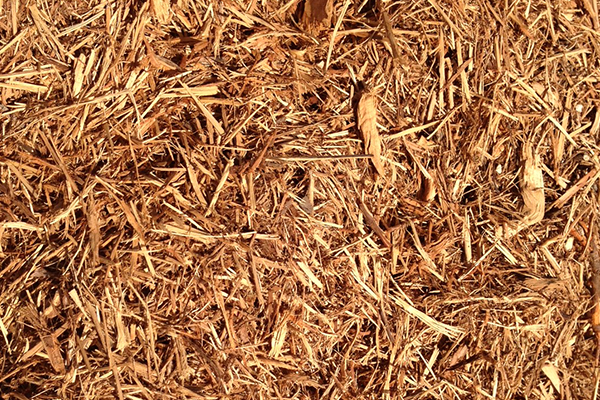Mulch is the organic material — typically shredded or chipped wood or bark, cocoa shells, pine needles or grass clippings — used in garden and landscape beds.
Once your garden bed is prepared and the plants are placed, two to three inches of mulch layered on top of the soil and around plants minimizes weed growth, insulates the soil from heat and cold, and maintains moisture. In choosing which kind mulch to use, consider how often you want to replenish the mulch, the presence of insects in your garden, your budget, soil quality and environmental conditions such as rainfall levels.
Like other mulches, cedar mulch serves various purposes in the garden. It suppresses weeds, neatens the appearance of landscape beds, conserves water and diminishes soil erosion. Cedar mulch comes from the bark of the cedar tree, an evergreen that grows abundantly in the Southern regions of the country – zones 7 through 9.
In mulch form, cedar is best used in beds that contain larger plants, bushes and trees due to its heavy, denser nature. Unlike many other types of mulch, cedar mulch decomposes slowly, taking years to break down, so it needs to be replenished less frequently. The resins in cedar mulch emit a pleasant scent. Anyone who has a cedar closet or dresser drawers lined with cedar knows that cedar has pesticide properties and may keep certain types of insects away from plants.
If you haven’t discovered the advantages of cedar mulch yet, this could be your year. Mulch benefits your plants, flowers, and trees while bumping up the WOW factor in your yard. But cedar mulch has unique properties, and it can do a lot more:
Restricts fungus and bacteria growth
Cedar mulch’s water-soluble chemical, thujaplicin, works to prevent both fungal and bacterial growth. The chemical protects your plants and leaves your garden looking fantastic.
Helps regulate temperature
Light-colored cedar mulch reflects sunlight to keep temperatures cooler during the summer and provides cover to keep them warmer during the winter.
Doesn’t shift
Since it’s shredded into small interlocking pieces that form a dense mat, cedar mulch stays in place better than other types of mulch, even with heavy wind and rain. There’s no need to reapply cedar mulch midway through the season! It stays tidy and looks great, saving you time, work, and money.
Breaks down slowly
Mulch takes awhile to decompose, leaving you with a lot of time before you have to replenish it.
Controls weeds
Cedar mulch is a great weed control. It blocks any sunlight that weeds need and prevents seed germination.
Repels insects naturally
Cedar acts as a natural repellent for ants, termites, roaches, crickets and slugs. However, cedar mulch also acts as protection for earthworms in your soil.
Like other mulches, cedar mulch can help plants retain water, deter weeds, and add nutrients to the soil. We’re proud to offer high-quality cedar mulch for delivery in Northern Virginia. Turn over some new mulch and try cedar this year.

